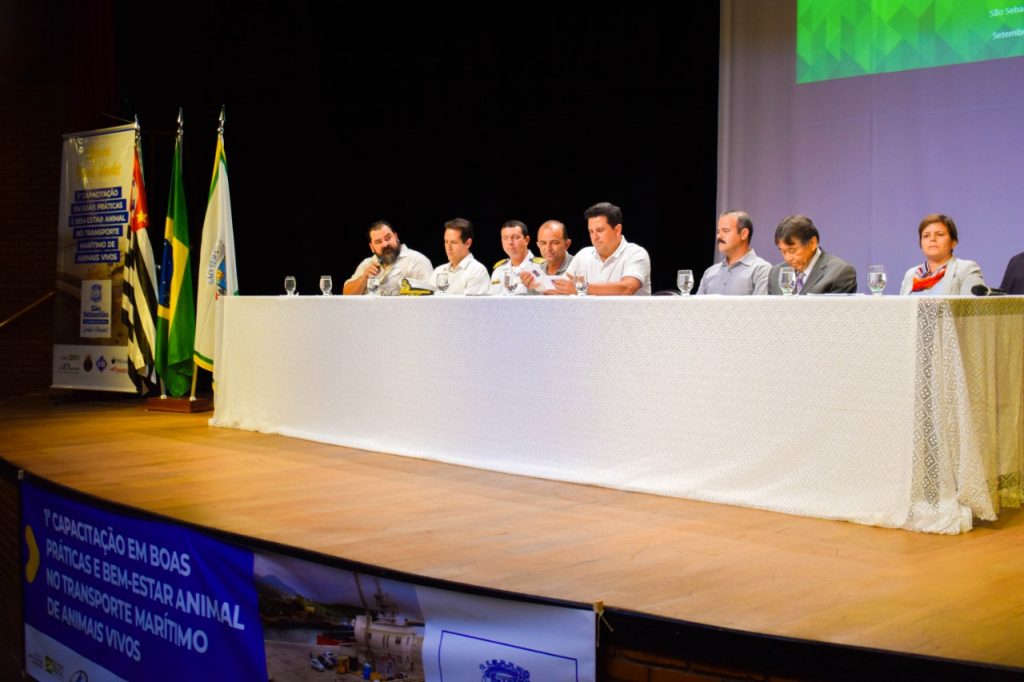São Paulo – The 1st Training Event on Good Practices and Animal Welfare in Living Animal Sea Transport started last Monday (16) and runs until Friday (20) at Teatro Municipal de São Sebastião on the coast of São Paulo. Arab Brazilian Chamber of Commerce Marketing director Janine Bezerra Menezes (pictured, R) participated in the opening ceremony panel. The event was organized by the Ministry of Agriculture in partnership with National Agency of Waterway Transport, Brazilian Navy, and Municipality of São Sebastião.
During her speech, Menezes stressed the importance of the Arab countries for the living cattle trade. “Over the last five years, the industry saw an average growth of 6.2% per year, grossing USD 153.46 million in 2018,” she reported. This figure accounts for 29% of total exports from Brazil, meaning that almost a third of the living cattle Brazil exports has an Arab country as its destination.
The Arab world is the second largest destination of living animals – cattle and horses – from Brazil, trailing only Turkey. Main buyers are Egypt, Lebanon, Iraq and Jordan.
“The industry growth in Brazil is related to the needs of countries like Lebanon, whose trade has developed since 2005. Egypt, currently the top Arab buyer of cattle from Brazil, has increased its trade since 2009, trailing only Jordan and Iraq,” said Menezes.
The director stressed the importance of the Port of São Sebastião, which is now the main logistics outlet of living cattle to the Arab countries, up 192% year-on-year in living cargo.
“Regarding the Arab demand, we see that there are still many opportunities to be explored. While these countries are important importers of cattle from Brazil, we have only a 13% market share. We can increase our exports significance, as well as diversifying markets,” Menezes said.
Brazil is one of the world’s largest living cattle exporters. According to the Ministry of Economy, last year saw exports of 810,000 head of cattle, up 102.2% year-on-year.
Companhia Docas de São Sebastião reports that living cattle exports are carried out in accordance to norms and procedures established by the Ministry of Agriculture, Livestock and Supply (MAPA). The body follows and supervises the process from the cattle quarantine in the farm to the road transport and shipping.
Translated by Guilherme Miranda




